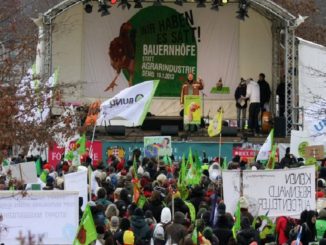
Ireland’s farm minister Simon Coveney TD finished last week on something of a statistical high: 2011 Irish food and drink exports marked a 12% year on year surge to a record level of EUR 8.85 billion, making it the most successful sector of the Irish economy. The country exports more than 85% of the food it produces, of which 42% goes to the UK (EUR 3.6 billion); a third of it is sold to EU member states and a quarter is shipped to third country customers.
The importance of food and agriculture to the national economy is clear: the sector buys in over 70% of its needs from Irish suppliers of goods and services, compared to 44% for Irish manufacturing industry. Agriculture is the main employment for 135,000 people and is an outlet for 128,000 family farms.
A farmer himself, Coveney predicts in his latest newsletter that demand for dairy products will increase, although he concedes that “…some volatility in world prices looks like being a feature of world trade over the next few years.”
Nevertheless, the minister is confident that a commitment to innovation, cost management and adapting to buyer and end user needs will “…enable the sector to continue to perform strongly in 2012.” The country has a 2020 target of building food exports to EUR 12 billion.
When EU agriculture commissioner Dacian Ciolos visited Dublin on January 18-9, the exchanges with Coveney were “…very frank and constructive,” since the Irish government needs a strong and well-resourced CAP to develop its policy commitments. In addition to “maximum funding and maximum flexibility” position on the CAP, Coveney notes that: “The method suggested for the allocation of rural development funds does not adequately address Irish concerns…”
He later developed the topic thus: “I made it clear to Commissioner Ciolos that the proposal to move to a flat rate of payment at national or regional level is extremely problematic for us, because it would result in the transfer of large amounts of funding from productive farms to more marginal and less productive land.” Coveney predicts that: “…the reform process will be a long and difficult one,” a view which Ciolos possibly shares.





